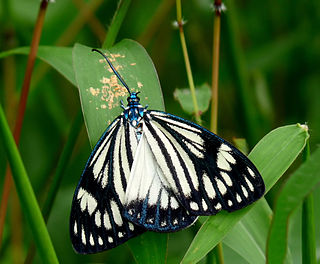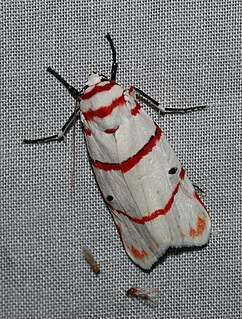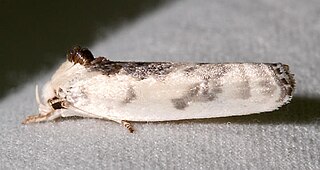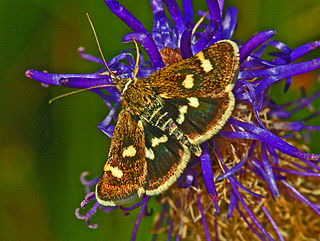| Tascia | |
|---|---|
| Scientific classification | |
| Kingdom: | Animalia |
| Clade: | Euarthropoda |
| Class: | Insecta |
| Order: | Lepidoptera |
| Family: | Zygaenidae |
| Subfamily: | Procridinae |
| Genus: | Tascia Walker, 1856 |
| Synonyms | |
| |
Tascia is a genus of moths of the family Zygaenidae.
A genus is a taxonomic rank used in the biological classification of living and fossil organisms, as well as viruses, in biology. In the hierarchy of biological classification, genus comes above species and below family. In binomial nomenclature, the genus name forms the first part of the binomial species name for each species within the genus.

Moths comprise a group of insects related to butterflies, belonging to the order Lepidoptera. Most lepidopterans are moths, and there are thought to be approximately 160,000 species of moth, many of which have yet to be described. Most species of moth are nocturnal, but there are also crepuscular and diurnal species.

The Zygaenidae moths are a family of Lepidoptera. The majority of zygaenids are tropical, but they are nevertheless quite well represented in temperate regions. Some of the 1000 or so species are commonly known as burnet or forester moths, often qualified by the number of spots, although other families also have 'foresters'. They are also sometimes called smoky moths.








